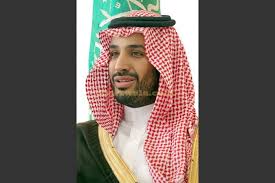ISRAEL AND SAUDI ARABIA ON THE SAME SIDE OF THE FENCE IN WEST ASIA
Prince Mohammed bin Salman appointed as new Defence Minister of Saudi Arabia: a war he cannot afford

NEW DELHI: Saudi Arabia’s initiative to form a military coalition against Iran’s growing influence in West Asia is now being fuelled by serious speculation of an undercover Saudi-Israel convergence of interests on this issue. It is no secret that Iran is seen as the biggest threat by both the countries, and although unprecedented, a covert understanding is not ruled out with stakes being high in both Riyadh and Tel Aviv at this point in time.
Israel and Saudi Arabia have a list of common enemies in the region. Hamas in Gaza, Hezbollah in Lebanon, and of course Syria and Iran. They have worked at different levels to try and pulverise the same. That they have not succeeded is not for want of trying.
Strengthening the speculation, now being voiced openly in the mainstream American media, is the fact that the first news about this coalition had appeared in the Sunday Times four years ago. This was long before the supposedly Iran backed Houthi rebels currently on the aggressive in Yemen were even visible as a threat. But even so the Sunday Times had reported: “The proposal, referred to by the diplomats involved as “4+1”, may eventually lead to technicians from Turkey, Saudi Arabia, the United Arab Emirates and Jordan working alongside Israelis in joint command-and-control centres.
‘The plan is to start with information-sharing about Iran’s ballistic missiles,’ said an Israeli official.”
The situation of course has changed in that the US under President Barack Obama has almost concluded the final nuclear deal with Iran, and is keen now to do business with Tehran in a visible shift in strategy. But what has not changed are the Saudi and Israel responses to Iran that is seen by both as the major threat to their existence in West Asia, and their determination to contain the Shia majority nation which is seen to be on the ascendant now.
The Gulf monarchies ---with the sole exception of Oman---have come together at the instance of Saudi Arabia against Iran, along with Sudan, Jordan, Turkey with Pakistan still unable to make up its mind about putting troops on the ground. Winning the war in Yemen against the Houthi rebels has thus,now become crucial for Saudi Arabia, with its new monarchy and young 34 year old defence minister on test for the first time. Besides given the Shia-Sunni face off victory has become imperative for Saudi Arabia that has put its reputation and influence on the line in combating the Houthi rebels in Yemen,
Military operations have been launched by the coalition with the Russians maintaining that their embassy has been destroyed as a result. However, the charge forward of the rebels has not been stalled with the Houthi’s capturing the presidential palace in Aden despite the combined military offensive. Their tanks rolled into the palace, and reports from Yemen confirm that the rebels are in control of the palace.
The Saudi’s might just find that victory is impossible without ground troops, and although large figures of soldiers to be deployed are being bandied about it is not clear where the military controls will lie. Saudi Arabia? That held a press conference in Washington with its Ambassador detailing an offensive, the largest since the Iraq war. The Saudi monarchy, given to a good life and exporting religion, is not particularly rneowned for its military skills ---actually quite the opposite---let alone coordinating and strategising a ten nation military.
However, defeat cannot an option for Saudi Arabia and the Sunni monarchies given the stakes, and it is here that the role of Israel is being talked of. Having entered the fray, Saudi Arabia that looks upon the Arab world as its backyard, will not accept an ignonimous defeat easily. Israeli politicians are openly elated with Saudi Arabia’s initiative. PM Benjamin Netanyahu is not particularly happy with the progress in the nuclear talks with Iran and has already said that “the Iran-Lausanne-Yemen axis is very dangerous for humanity and needs to be stopped.” In 2013 international media had carried detailed reports of Saudi-Israeli cooperation against Iran, and while never confirmed officially were not denied either.
The stakes for both countries have gone up since, with Riyadh and Tel Aviv staunchly opposed to Washington’s dealings with Tehran. Saudi Arabia has clearly implemented the old plan now, and it remains to be seen whether Israel enters the picture. Or rather when and how?
Saudi Arabia in fighting the Assad regime in Syria made common cause with al Qaeda that is expected to serve as its ally in Yemen as well against the Houthi rebels. The al Qaeda fighting the Syrian forces along with other groups merged at some stage into the more lethal Islamic State that is a Sunni force, aided and abetted according to reports in the region by Saudi Arabia that has built itself a reputation of supporting the most regressive and extremist forces in West Asia.



